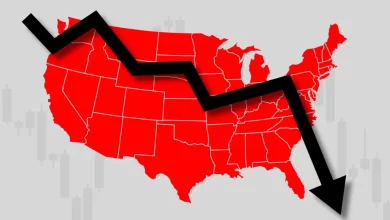Pro-XRP lawyer Bill Morgan analyzes Judge Torres's fair and efficient ruling in Ripple vs. SEC case.
CryptolawUS Founder John E Deaton praises Morgan's insights and predicts the ruling will withstand appeal.
Their exchange showcases collaboration in the crypto legal community.
In a recent Twitter thread, Bill Morgan, a well-known lawyer supporting XRP, took the time to provide a comprehensive breakdown of the legal developments in the ongoing Ripple vs. SEC case. This comes after an important event where Judge Jed Rakoff denied the use of Judge Torres’s previous ruling to dismiss the SEC lawsuit.
Judge Torres’ Complex Ruling
In a series of insightful tweets, Bill Morgan, a prominent pro-XRP lawyer, delved into the intricacies of Judge Torres’s ruling in the Ripple vs. SEC case. His analysis focused on the underlying principles and considerations that shaped the judge’s decision
Morgan questioned the source of any potential error, pointing out that it was the SEC itself that categorized the three types of XRP sales, not the judge. These categories were established due to significant differences in critical aspects between the types of sales.
Morgan highlighted that the judge’s approach was rooted in efficiency and fairness. She meticulously analyzed each category based on the distinct parameters advocated by the SEC, referring to authoritative sources like the Marine Bank case.
Key Disparities Revealed
Morgan emphasized that Judge Torres’s evaluation revealed substantial disparities between institutional and programmatic sales. Notably, the differences include the contracts between Ripple and institutional buyers compared to programmatic buyers who remained unaware of Ripple’s role as the seller. The judge’s evaluation also discerned that programmatic buyers’ profit expectations were not solely dependent on Ripple’s actions.
This detailed analysis revealed that the “factual setting as a whole” varied significantly between the sales categories, leading to distinct outcomes for reasonable investors in each scenario. Morgan concluded that Judge Torres’s reasoning was solid, firmly aligning with the landscape of facts presented in the case.
Deaton Praises Morgan’s Insights
John E Deaton, the Founder of CryptolawUS, praised Bill Morgan’s comprehensive thread for its excellence in clarifying the nuances of Judge Torres’s approach. He emphasized that Judge Torres didn’t arbitrarily distinguish between various sales categories but rather meticulously applied the SEC-defined categories to the Howey test, showing a methodical and fair assessment.
Deaton confidently expressed his belief in the potential outcome, indicating his willingness to speculate significant resources that Judge Torres’s ruling would withstand any appeal. This observation reflects a high level of confidence in the integrity and precision of Judge Torres’s legal reasoning.
Rallying Support
The dialogue between Morgan and Deaton not only underscores the depth of analysis these experts provide but also showcases the collaborative nature of the cryptocurrency legal community. Their dedication to providing clarity and understanding of complex legal matters is a testament to the expertise within the field.







